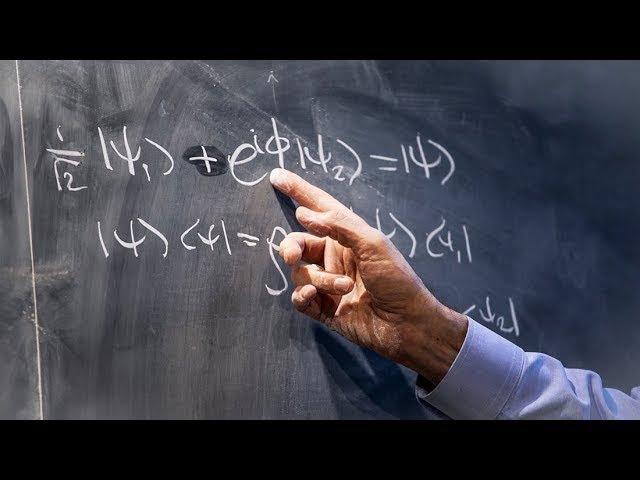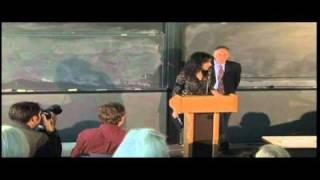Time Travel, Teleportation & Science
Time travel is the concept of moving between different points in time in a manner analogous to moving between different points in space, generally using a theoretical invention, namely a time machine. It has a commonly recognized place in philosophy and fiction, but has a very limited application in real world physics, such as in quantum mechanics or wormholes.
Although the 1895 novel The Time Machine by H. G. Wells was instrumental in moving the concept of time travel to the forefront of the public imagination, The Clock That Went Backward by Edward Page Mitchell was published in 1881 and involves a clock that allowed three men to travel backwards in time.[1][2] Non-technological forms of time travel had appeared in a number of earlier stories such as Charles Dickens' A Christmas Carol. Historically, the concept dates back to the early mythologies of Hinduism (such as the Mahabharata), Buddhism, and Islam through ancient folk tales. More recently, with advancing technology and a greater scientific understanding of the universe, the plausibility of time travel has been explored in greater detail by science fiction writers, philosophers, and physicists.
Teleportation, or Teletransportation, is the theoretical transfer of matter or energy from one point to another without traversing the physical space between them. It has a commonly recognized place in science fiction literature, film, and television, but as yet has a very limited application in real world physics, such as quantum teleportation or the study of wormholes.
Science (from Latin scientia, meaning "knowledge") is a systematic enterprise that builds and organizes knowledge in the form of testable explanations and predictions about the universe. In an older and closely related meaning, "science" also refers to a body of knowledge itself, of the type that can be rationally explained and reliably applied. A practitioner of science is known as a scientist.
In modern usage, "science" most often refers to a way of pursuing knowledge, not only the knowledge itself. It is also often restricted to those branches of study that seek to explain the phenomena of the material universe.
Source : Wikipedia
-
56:03

Time Travel Documentary | In The Steps of Time
Added 573 Views / 0 LikesWe traveled around the world to meet with people claiming to be real time travelers. The people painted different pictures of the future. Do multiple timelines exist? Here is our full length documentary called "In The Steps of Time" In this time travel do
-
06:28
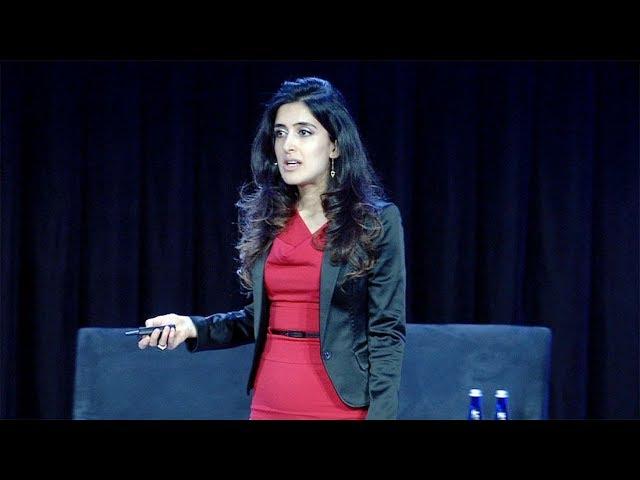
MIT Intelligence Quest Launch: AI-Driven Drug Discovery
Added 392 Views / 0 LikesLeila Pirhaji, Founder and CEO of ReviveMed, describes her startup at the launch event for the MIT Intelligence Quest, an Institute-wide initiative on human and machine intelligence research, its applications, and its bearing on society.Watch more videos
-
00:49
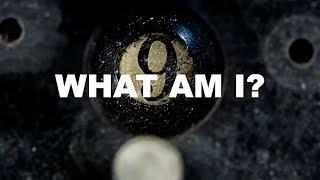
#MacroMonday: Numbers
Added 420 Views / 0 LikesThings aren’t always what they seem . . . or are they? Extreme close-ups often obscure the full picture. Cloaked in mystery, this new video series introduces a variety of objects and moments — found at MIT — that invite you to take a second look. Watch mo
-
07:01
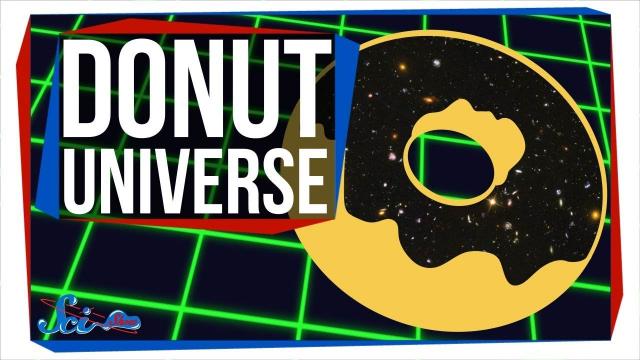
What If the Universe Was Shaped Like a Donut?
Added 339 Views / 0 LikesThe universe could be a donut in a fourth spatial dimension. Which would mean that we could potentially see our own galaxy repeated from the past... Our 3D brains aren't ready for this.Get your topological donut here: https://store.dftba.com/products/spac
-
06:57
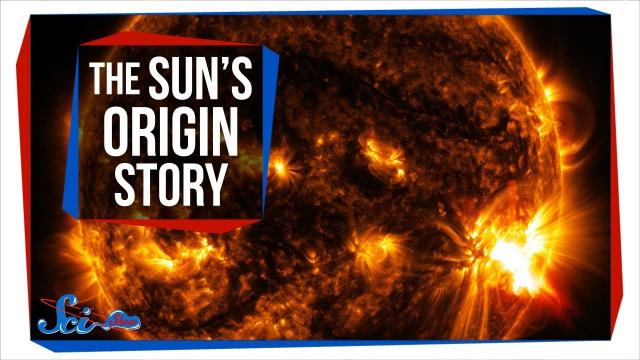
We Don't Actually Know Where the Sun Came From
Added 213 Views / 0 LikesWe can’t find evidence of the Sun’s family, or how it might have formed, but we do have some pretty good theories.The first 200 viewers to sign up at brilliant.org/scishow will get 20% off their annual premium subscription AND support SciShow.Hosted by: R
-
04:32
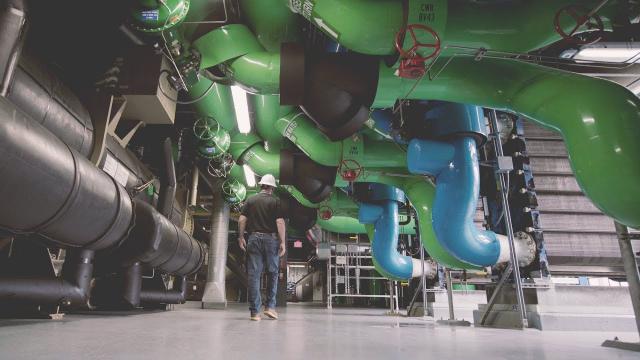
The Heartbeat of Campus: MIT's Central Utilities Plant (CUP)
Added 390 Views / 0 LikesIn 1916, MIT built an on-site steam and electrical power plant to serve its new campus. A state-of-the-art facility for that era, the plant represented MIT’s commitment to cleaner, more efficient generation of energy. A century later, MIT continues to pur
-
02:58
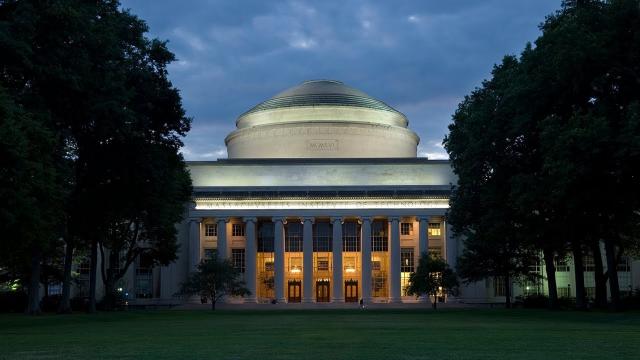
MIT reshapes itself to shape the future
Added 181 Views / 0 LikesMIT has announced a $1 billion commitment to address the global opportunities and challenges presented by the prevalence of computing and the rise of artificial intelligence (AI). Read more: http://news.mit.edu/2018/mit-reshapes-itself-stephen-schwarzman-
-
05:25
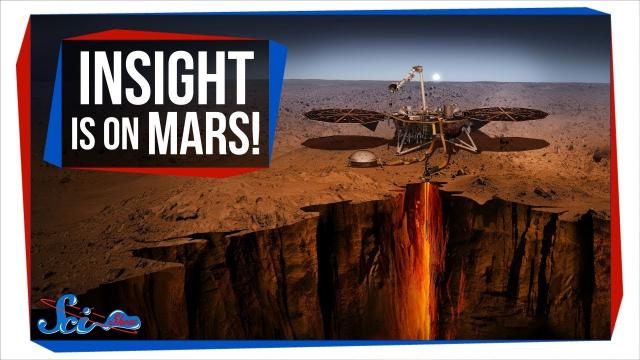
InSight Landed on Mars! What's Next? | SciShow News
Added 419 Views / 0 LikesInSight has safely landed on Mars, and astronomers have some improved theories about the TRAPPIST-1 system.Hosted by: Caitlin HofmeisterSciShow has a spinoff podcast! It's called SciShow Tangents. Check it out at https://www.scishowtangents.org----------S
-
05:57
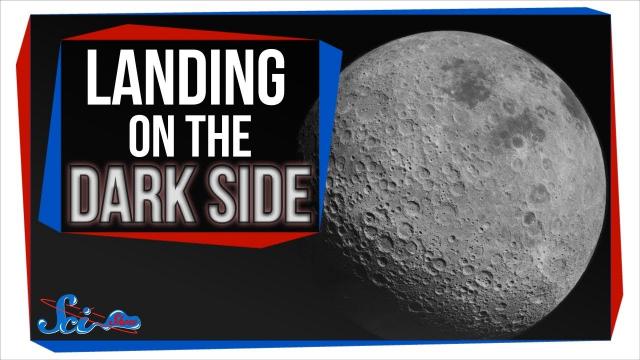
We Just Landed on the Far Side of the Moon for the First Time! | SciShow News
Added 401 Views / 0 LikesThe new year is off to a great start for space exploration! New Horizons has passed the farthest object ever visited by a spacecraft, and China put a lander on the dark side of the Moon!Hosted by: Hank GreenSciShow has a spinoff podcast! It's called SciSh
-
16:16
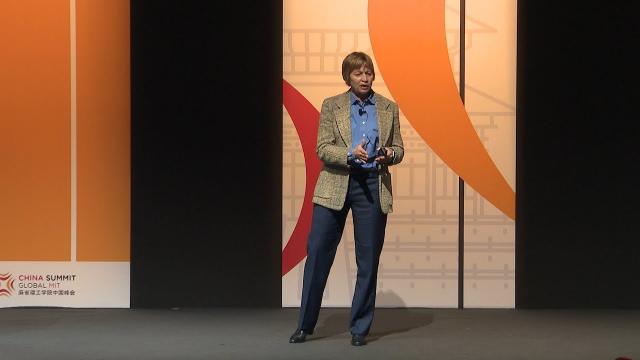
MIT China Summit: Maria Zuber
Added 298 Views / 0 LikesMaria Zuber, Vice President for Research, MIT discusses how climate change is affecting the world -- from Boston to the North China Plain -- and gives an update on technologies that are being developed at MIT and in China to mitigate the effects of global
-
59:16
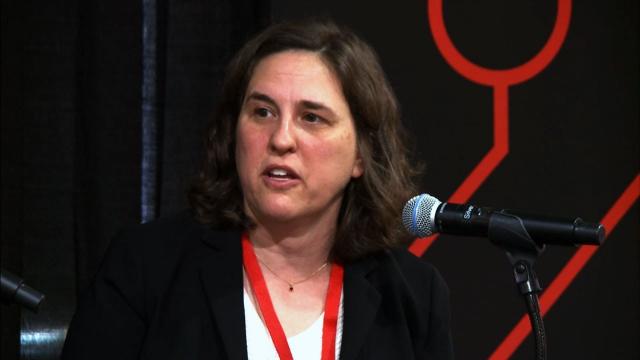
Teaching Computing in Science and Engineering
Added 360 Views / 0 LikesScience and engineering have been heavy users of computing power for a long time. More recently, computational thinking is having a bigger impact in foundational techniques and thinking. A panel of both faculty from MIT and elsewhere, along with professio
-
1:24:09
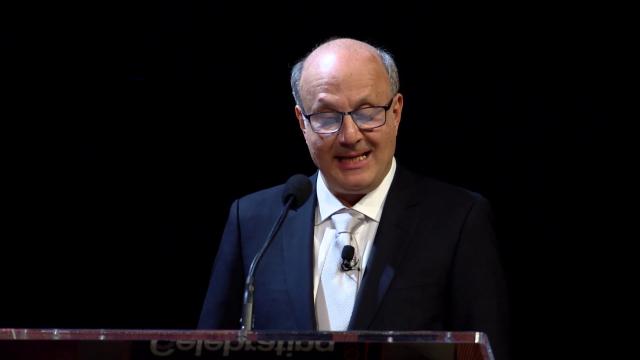
Computing the Future: Setting New Directions (Part 1)
Added 324 Views / 0 LikesMIT Chancellor Cynthia Barnhart, the Ford Foundation Professor of Engineering, offers an introduction to the session on “Computing the Future: Setting New Directions” at the celebration of the MIT Stephen A. Schwarzman College of Computing. This historic
-
30:39
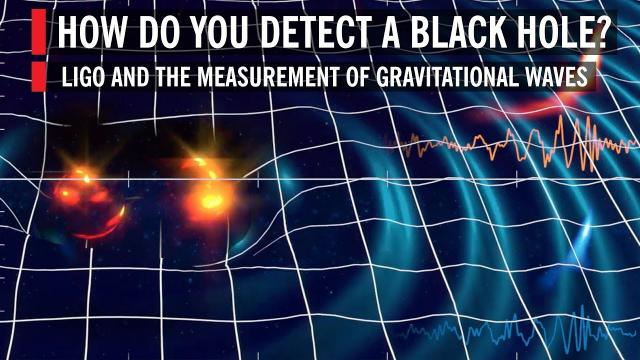
How Do You Detect a Black Hole? LIGO and the Measurement of Gravitational Waves
Added 402 Views / 0 LikesUntil 2015, scientists could only infer the existence of theoretical black holes. But everything changed when the LIGO experiment detected gravitational waves from the collision of two binary black holes 1.3 billion light-years from Earth. In this program
-
07:00
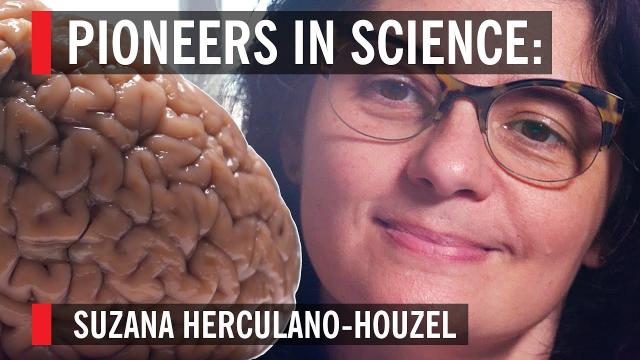
The woman who turns brains into soup: Suzana Herculano-Houzel
Added 334 Views / 0 LikesEver wondered how many neurons are in the human brain? Meet Suzana Herculano-Houzel, a professor at Vanderbilt University whose pioneering "brain soup" technique made it possible to accurately count the number of neurons in brains of all sizes. From eleph
-
1:24:39
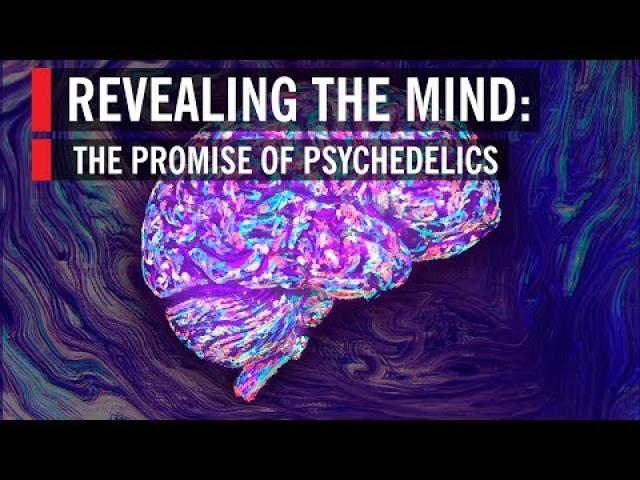
Revealing the Mind: The Promise of Psychedelics
Added 335 Views / 0 LikesNearly every culture throughout history has used chemicals that alter consciousness for spiritual exploration. In the 20th century these drugs caught the attention of scientists. Psychedelics, as they were named, proved effective at treating intractable i
-
26:45
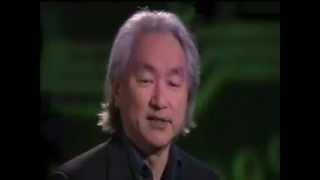
Time Travel Shocking Reality Best Evidence...
Added 1,109 Views / 0 LikesTime travel as it really happened evidence to suggest it has.. John Titor time traveller and some very interesting events and opinions fascinating video you have to see it... open your mind..
-
3:00:16
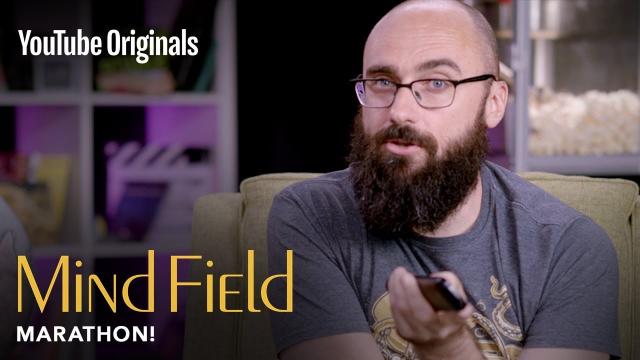
I Watch 3 Episodes of Mind Field With Our Experts & Researchers
Added 1,437 Views / 0 LikesEVERY EPISODE OF MIND FIELD IS NOW FREE for the rest of the year! To celebrate, I asked a group of colleagues who worked with me on the series to sit down at Vsauce HQ and watch through three entire episodes. We go behind the scenes, elaborate on topics i
-
07:08
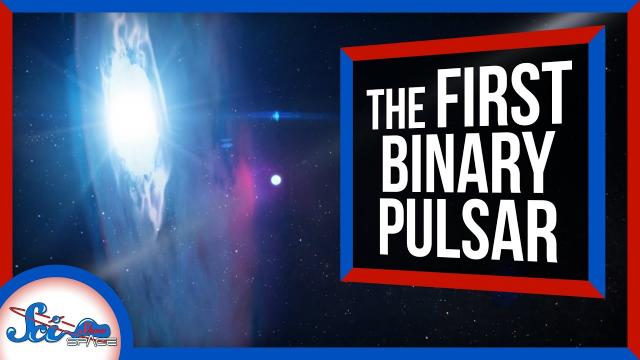
How Two Dead Stars Sparked a New Field of Astronomy
Added 343 Views / 0 LikesPulsars are more than just cool blinking lights shining across the universe. The discovery of the first binary pulsar paved the way for gravitational wave astronomy astronomy today.Hosted by: Reid ReimersSciShow has a spinoff podcast! It's called SciShow

